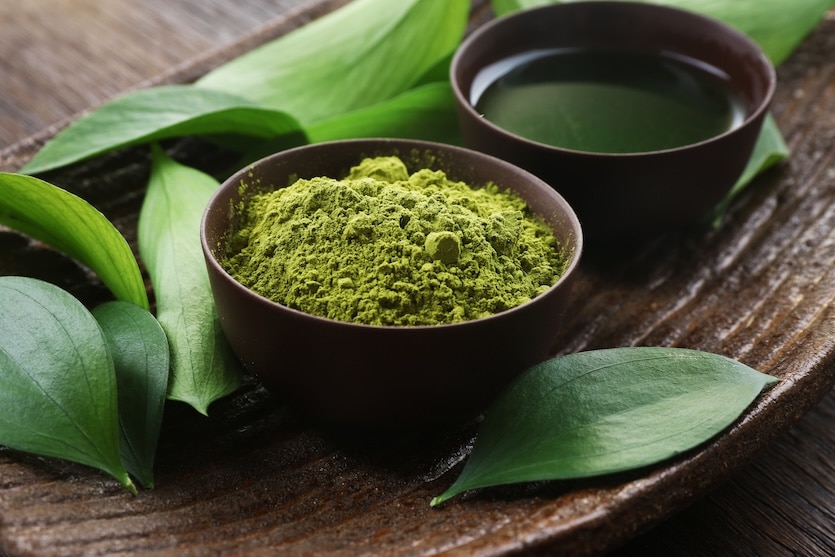
Phytochemicals in Tea
Tea, whether black, green, oolong, pu-erh or white, contains a variety of healthy phytochemicals. Chief among these are polyphenols, powerful antioxidants that help combat free radicals. The most plentiful polyphenol in tea is catechins, a group of plant compounds that includes epicatechin, epicatechin gallate, epigallocatechin and epigallocatechin gallate (EGCG). EGCG is thought to be one of the most potent antioxidants found in foods. Tea also contains small amounts of caffeine along with theanine, an amino acid that produces a calming effect when combined with caffeine.
Anti-Inflammatory Effects
Studies have shown that the polyphenols in tea have anti-inflammatory properties. Specifically, catechins like EGCG can inhibit the activity of inflammatory enzymes. Reducing inflammation is important for reducing the risk of chronic diseases as well as speeding healing and recovery. Some research indicates that drinking Tea Extracts regularly can help reduce markers of systemic inflammation like C-reactive protein. Adding tea to your diet may provide an extra boost when it comes to managing inflammation.
Antioxidant Protection
As mentioned, tea catechins act as powerful antioxidants that help fight oxidative stress in the body. Oxidative stress occurs when there is an imbalance between free radicals and antioxidants, allowing free radicals to damage cells. Drinking tea on a daily basis helps support your body’s innate antioxidant defenses by contributing additional antioxidants from the outside. This boost of extra antioxidants can help prevent oxidative damage to cells, proteins and DNA, reducing disease risk over time.
Improved Heart Health
The antioxidant compounds in tea have specifically been linked to benefits for heart health like reducing risk of cardiovascular disease. Studies show tea drinkers have lower rates of heart attack and stroke when compared to non-tea drinkers. Some research suggests compounds in tea help protect LDL cholesterol from oxidation, reduce blood pressure slightly and prevent blood clots. All of these small benefits add up to make tea a heart-healthy beverage, especially when substituted for less healthy drinks like soda.
Cancer Prevention Potential
Ongoing research continues to uncover cancer preventative properties of components in tea. Polyphenols may help reduce cancer cell proliferation, slow tumor growth and even help protect against DNA damage. While not definitive, certain cancers like prostate, breast, skin, lung and colorectal cancers seem to have inverse relationships with tea consumption according to some epidemiological studies. More research is still needed, but adding a daily cup or two of tea could potentially provide an inexpensive way to help reduce cancer risk.
Brain and Mental Health Benefits
The caffeine in tea delivers mild stimulant effects that can boost mental alertness, focus and mood. And when combined with L-theanine like it is in tea, caffeine provides a clean sustainable energy boost without an accompanying crash or jitters. Emerging research also shows that EGCG may provide protection for brain neurons reducing risks of neurodegenerative diseases like Parkinson’s and Alzheimer’s down the line. Additionally, studies link regular tea drinking to reducing anxiety and depression symptoms as well as lowering risk of developing dementia in later life.
Anti-Diabetic Effects
Studies show green tea in particular possesses anti-diabetic activity, aiding in regulation of blood sugar and insulin sensitivity. Catechins like EGCG activate insulin receptors enhancing glucose uptake by cells. Some research indicates green tea consumption can help reduce blood sugar spikes after meals in both healthy individuals and those with prediabetes or diabetes. Maintaining stable blood sugar levels is important for overall health as well as reducing diabetes complications. Adding a daily cup of green tea could potentially aid diabetes management and prevention.
Weight Management Benefits
Black and green teas are potential allies when it comes to weight control. Beyond providing an energy boost, compounds in tea may increase calorie burning, target belly fat accumulation and promote feelings of fullness to naturally curb appetite and calorie intake. While thermogenic effects are modest, synergistically replacing caloric beverages like soda with tea as part of an overall healthy lifestyle routine could help weight loss efforts over time according to some research. Tea drinking shows promise as an adjunct to dieting for improving weight management outcomes.
In tea polyphenols deliver a wide array of benefits thanks to powerful antioxidant and anti-inflammatory activities. From boosting brain and heart health to aiding diabetes and cancer prevention, reducing inflammation throughout the body and potentially even helping with weight management—tea extracts offer numerous evidence-backed ways to promote health when consumed daily. The more we understand about tea’s phytochemistry, the more we can appreciate this simple enjoyed beverage as a functional wellness supporting drink.
Gets More Insights on: Tea Extracts